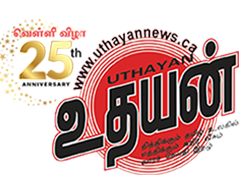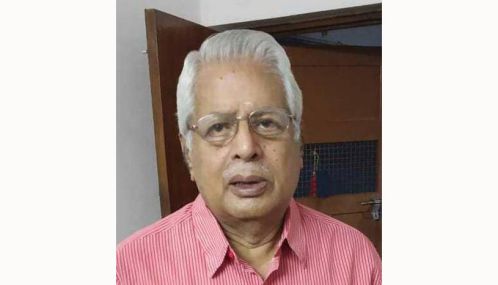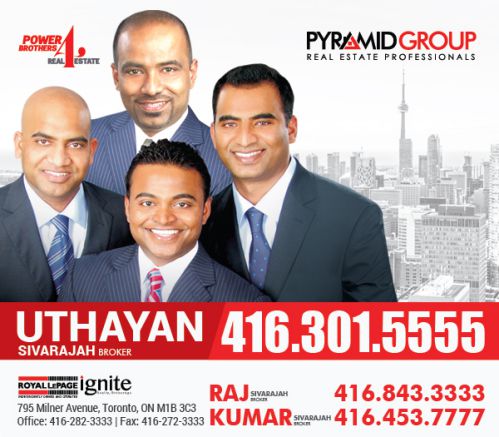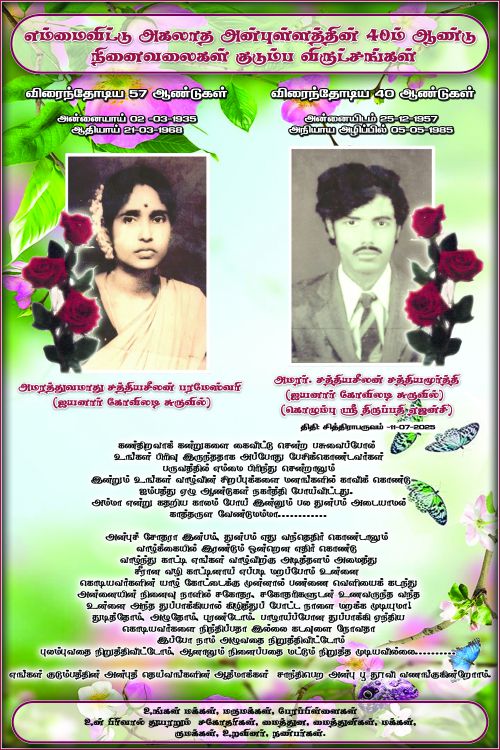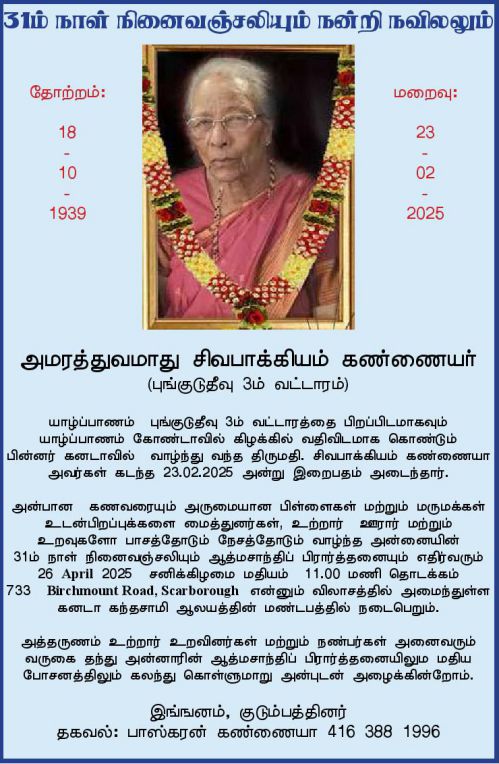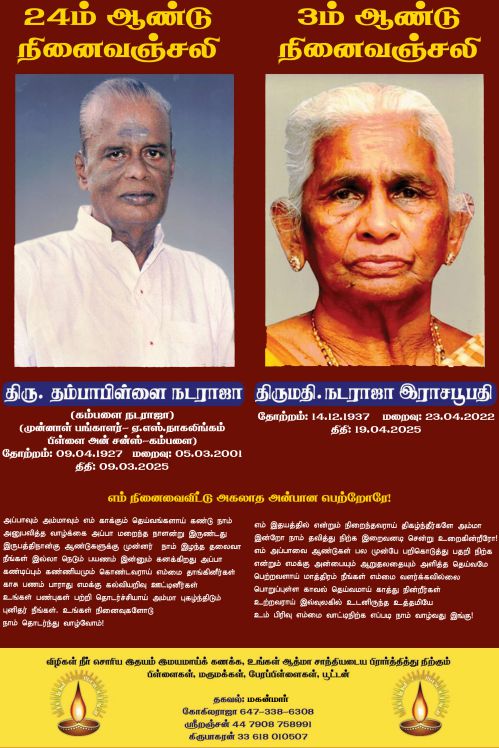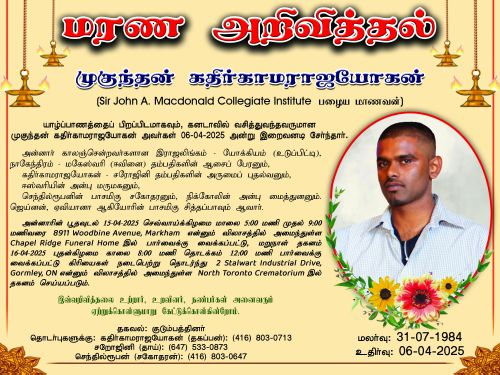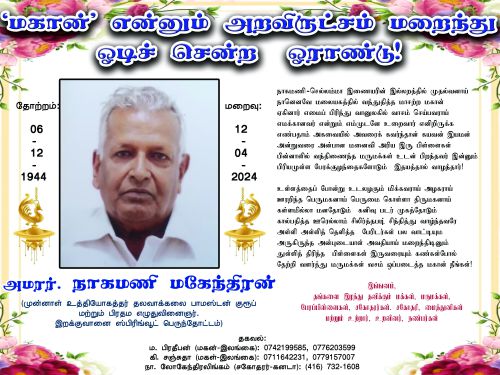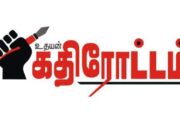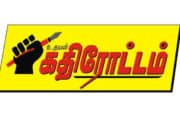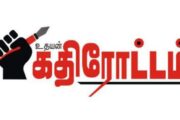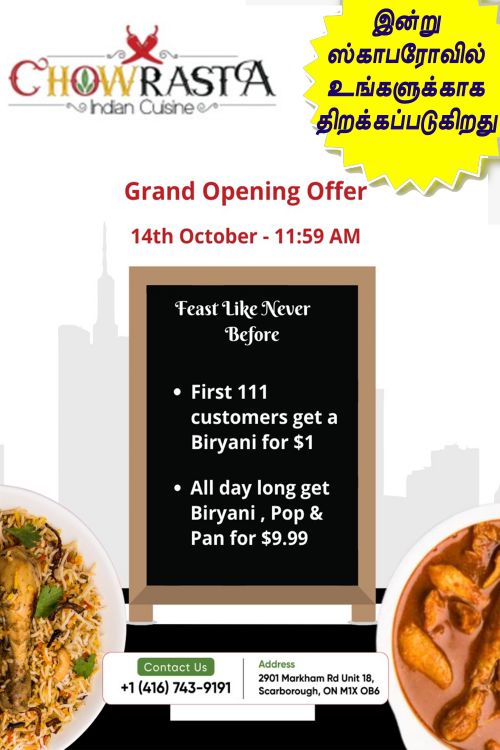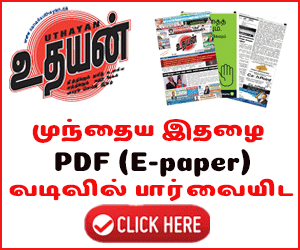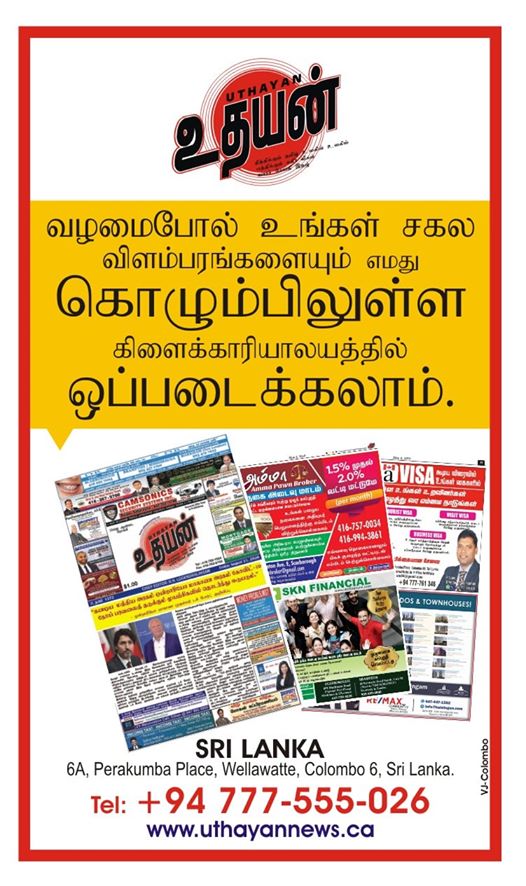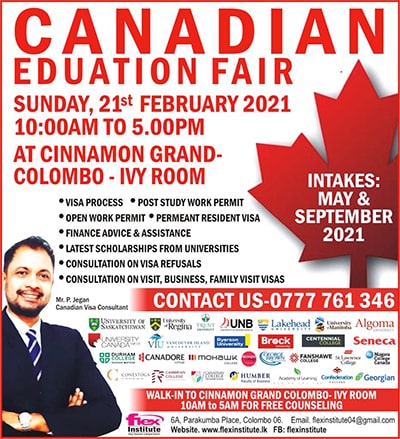An EXCLUSIVE interview with Prof. V. Suryanarayan
By: A.Jathindra
Prof. V. Suryanarayan is one of India’s leading specialists in South and Southeast Asian Studies. For more than two decades he was associated with the Centre for South and Southeast Asian Studies, University of Madras, first as the founding Director and later as Senior Professor. He was Visiting Professor in several Universities in India, United States and Sri Lanka. He was a member of the National Security Advisory Board of the Government of India for one term.
The 13th Amendment is once again the subject of debate on the Tamil issue in Sri Lanka. A section of Sinhala-Buddhist nationalist groups urges that the 13th must repeal in the constitution and abolish the provincial council system. In a way, the situation has forced the Eelam Tamils again to return to the Indo-Sri Lanka Accord. However, Most Eelam Tamil political observers believe that the Tamil issue cannot be resolve without India’s direct involvement. As a constant observer of Tamil quest in Sri Lanka for decades, how do you see this situation?
Because of the many acts of omission and commission committed by the Tigers, the Tamil struggle for participatory democracy has suffered serious setbacks. The actual situation today has gone back to pre-1983 days.
You are right. The Sinhala majoritarian Government wants to undo the 13th Amendment. The merger of the north and the east, an article of faith for all Tamil groups, has been undone by a judicial pronouncement. There are official statementsthat the provincial councils would be disbanded. Decentralisation, not devolution, of powers to Development Councils may be the objective of the present government.
There are serious limitations to what India can do to bring about changes in the political systems of neighbouring countries. The India-Sri Lanka Accord of 1987 and consequent 13th amendment to the Constitution were due to New Delhi’s insistence and pressure tactics. It may be recalled Ambassador JN Dixit used to be called by the Sinhalese as India’s Viceroy in Sri Lanka.
Without Tamil participation and Sinhala consensus the Accord itself became a source of discord . It led to the second JVP revolt. It was the IPKF presence in the north and the east which enabled the Sri Lankan armed forces to withdraw from the Tamil areas and put down the JVP revolt.
The Tigers did not co-operate with India and finally came into conflict with the IPKF. The TULF was expected to co-operate with India, contest the elections and come to power in the combined Northeast Provincial Council. TULF backed out and the EPRLF came to power. The rapid turn of events led to a situation when President Premadasa provided arms and money to the Tigers.
The change of Government in India resulted in a change of policy and finally the IPKF had to come back to India, unsung, unwept and unhonoured. The temporary honeymoon between Premadasa and Prabhakaran ended and the President himself fell a victim to the cult of the bomb and the bullet perfected by the Tigers.
Has there been a serious debate among the Tamils as to what went wrong with the Tamil struggle? Unless a self evaluation takes place and new policies and programmes are enunciated, Sinhala dominance would continue and Tamils would have to live as second class citizens.
When I raise this question, I do not rule out the stumbles and missteps of the Tamil side. There is reluctance among Tamil nationalists to accept the 13th Amendment as a political solution. The Tamil National Alliance (TNA) involved bringing a new constitution with the previous government’s support. At the time, the TNA leader R.Sampanthan was in the mood that Sinhalese would get angry if they approached India. He has mentioned this on some occasions and believed that they could go out of the 13th Amendment. Nothing happened in the end. Now TNA seeks India’s help again. Will New Delhi be in a position to support a political solution that would overturn the 13th Amendment? What is your take on this?
You have stated, in the first two lines, “I do not rule out the stumbles and missteps on the Tamil side”. This reflects the average Sri Lankan Tamil attitude towards the Tigers. Can the crimes committed by the Tigers – driving away the Moslems from Jaffna peninsula , assassination of Sabaratnam and Padmanabha and many others belonging to other militant groups . assassination of Amirtalingam, Neelan Thiruchelvam Lakshman Kadiragamar and others “stumbles and missteps” ?
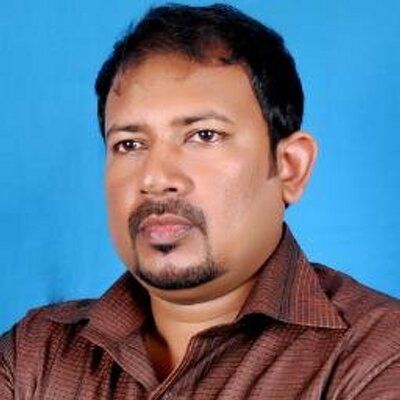
On Sambanthan: in his visits to Tamil Nadu, he never tried to meet the leaders of DMK or AIADMK because of the competitive rivalry between the two Dravidian parties and his desire not to be seen as a friend of one against the other. The only party he used to meet was the local unit of the BJP. Of course he used to meet the senior officials of the MEA in New Delhi and also the diplomats in the Indian High Commission in Colombo. Whether he was able to influence New Delhi’s policy it is very doubtful. Like a mantra New Delhi would repeat the ethnic problem could be resolved only if the 13th amendment is implemented in letter and spirit.
New Delhi has burnt its fingers in Sri Lanka and the present attitude of New Delhi is to strengthen the links with the Sri Lankan government.
A section of Eelam Tamils still believes that Tamil Nadu can play a pivotal role to reshape India’s Sri Lanka policy. On this basis, a division of Tamils in the Diaspora seeks to feed Tamil Nadu politicians like Seeman. Can Tamil Nadu play a significant role in shaping India’s foreign policy towards Sri Lanka? I am skeptical of this view because, so far, no evidence found. Maybe I was wrong. What are your thoughts on this?
On the role of Tamil Nadu, Tamil Nadu can and should play a benign and constructive role in the formulation and implementation of India’s Sri Lanka policy. To give an illustration, the abrogation of the two India-Sri Lanka Agreements of 1964 and 1974 on October 31, 1981 was partly due to the representation made by then Chief Minister MG Ramachandran. The credit should largely go to then Indian High Commissioner Thomas Abraham who brought about a change in the attitude of Prime Minister Indira Gandhi. He also discussed the subject with MG Ramachandran who led an all party delegation to New Delhi and requested Indira Gandhi not to renew the agreements.
The policies and programmes of the two major Dravidian parties could be understood only in the backdrop of competitive rivalry as to who is the greater champion of overseas Tamils. In that process the real issue was forgotten and rhetoric became more important than reality. During the Fourth Eelam War, India should have played a big role in rescuing the innocent Tamils caught, between the Lions and the Tigers, but for Karunanidhi remaining in the central government was far more important than supporting the Tamil cause. As a result, according to UN estimates 40, 000 innocent Tamils died.
The two Dravidian parties are important, but the role of others is insignificant. Nedumaran perhaps was the greatest supporter of the LTTE in Tamil Nadu, but in the general election he contested from Madurai, he lost, he was no match to MGR’s charismatic hold on the Tamil population. People in the Diaspora who believe that Seeman would help the Tamil cause, I submit, are living in a fool’s paradise.
What solution would satisfy the aspirations of the Tamils in a united Sri Lanka? The Tamils should come to a conclusion and seek the support of New Delhi and Chennai. The ball is in the Tamil court.
This question also is slightly related to India’s Sri Lanka policy. There is a perception that the Brahmins are always against the Eelam Tamils and some assumed that Brahmins in the South Block are the reason to why Indian foreign policy continues to be the pro-Sinhala line. Some Tamil political commentators still consider this view as a serious one. I have noticed this in many circumstances. But, in my observation, it has imported from the practices of Dravidian politics in Tamil Nadu. What is your opinion on this type of view?
Regarding the view that Brahmins are the villains of India’s Sri Lanka policy, I submit that I am a Brahmin by birth, not Tamil Brahmin, but Palghat Brahmin. Tell your friends about my birth, you will be accused of the same crime. Caste has played and continues to play a major role in Tamil Nadu politics but in the formulation and implementation of India’s Sri Lanka policy caste was not at all an issue. Mrs Indira Gandhi, whom the Tigers admired, was a Kashmiri Brahmin. VP Singh, under whose regime, the IPKF was withdrawn was a non-Brahmin.
It is about geopolitics. A section of Tamil intelligentsia believes that the geopolitical rivalry, particularly the Sino-Indian power play in the Indian Ocean region (IOR), will bring opportunities for Tamils. They assume that at some point, India will have no choice and take up the problem of Tamils in Sri Lanka eventually. What are your thoughts?
On geo-politics., Sino-Indian rivalry and the role of the Tamils. I have a different point of view based on my long years of research on Sri Lanka On many issues, where Indian interests were vitally involved, sections of Tamils have taken an anti-India stance.
1) When the Indian Tamils were rendered stateless and voteless, soon after independence, the main advisor to D S Senanayake was a Tamil bureaucrat – Sir Kandiah Vaidyanathan. In his book, Outside the Archives, Y D Gundevia, former Foreign Secretary, has written that Sir Kandiah Vaidyanathan was “ more Sinhalese than D S Senanayake himself”. You may recall that many Tamils members of Parliament voted in favour of the Government.
2. When after coming to power in 1956 election, SWRD Bandaranaike asked the British to withdraw from the bases in Ceylon, the Federal party was opposed to it. Nehru naturally supported Bandaranaike. 3) During the first Eelam War when Tamil Nadu was the sanctuary and support base of the Tamil guerrillas, and when Indian fishermen were being bombed and killed by the Sri Lankan armed forces, the TULF trio never even condemned Sri Lankan Government.
On Kachchativu they used to tell me that “it is your problem”. On Sino-Indian rivalry to win friends and influence people in Sri Lanka Tamil spokesmen are favoring India. Let us see how things will unfold themselves.
There is a prevalent public view that India has been losing its historic numero uno position in Sri Lanka because ‘Sri Lanka has quietly become the “Crown Pearl” of China’s multi-billion-dollar BRI strategy in the Indian Ocean. What are your thoughts on this? Do you think India’s Sri Lanka Policy has been facing severe setbacks?
On India-China rivalry¸ it should be pointed out that though Ceylon in the early years of independence was anti-communist, the UNP Government signed the rubber-rice agreement with China which benefitted both countries. With the liberalization of the Chinese economy China no longer supported revolutionary struggles across the world.
It became the upholder of the status quo. During the Fourth Eelam War China provided lot of arms to Sri Lanka, which strengthened the relations between the two countries. India could not adopt such a policy because it would have gone against the aspirations of the Tamil peoples. Compared to India, China has more resources to assist Sri Lanka. Hambantota, development of Colombo harbor etc China continues to help Sri Lankan Government in a big way.
India-China- Sri Lanka triangular game has to be seen in the global context of “quarantining China” in a big way led by the United States and China’s successful policy of coming out of the isolation. In this game India seems to be on the losing side.
Finally, what advice you would offer to Eelam Tamil leaders in Sri Lanka?
In your interesting questionnaire, you have not mentioned a single word about the “other Tamils” of Sri Lanka namely the Indian Tamils or Malaiha Tamils as they would like to call themselves today. Why have you not mentioned a single word about them? Is it because they are Thottakattans and Kattumirandis?
You are equally silent about Tamil speaking Muslims, who seek their identity in terms of religion and not language.
My humble submission, whatever it is worth, is for the Sri Lankan Tamils to make common cause with these two groups and demand greater devolution, protection of language and religious rights, right to employment etc. If that is done, that is a big if, you can count on the support of the outside world in your quest for justice and equality
